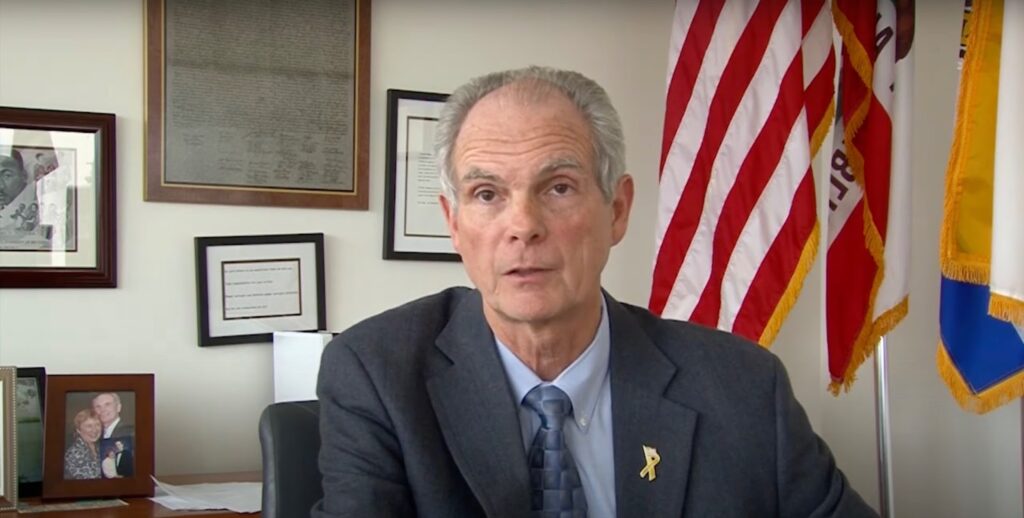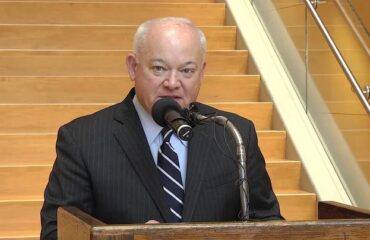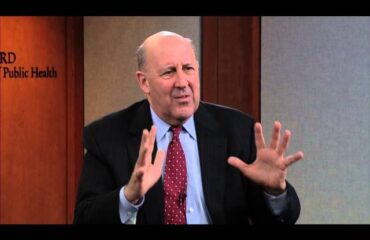Chuck Reed, a prominent figure in American politics, has left an indelible mark on the landscape of governance and policy. As a former mayor of San Jose, California, his tenure was marked by significant reforms and initiatives that shaped the city’s trajectory. Beyond his mayoral role, Reed’s influence extended to state-level policies, particularly in the realm of pension reform.
Early Life and Entry into Politics
Chuck Reed’s journey into politics was influenced by his early life experiences and a deep-rooted commitment to public service. Born in Garden City, Kansas, Reed’s formative years were characterized by a strong sense of community and civic engagement. His upbringing instilled in him a profound understanding of the challenges faced by working-class families, shaping his perspective on governance and policy. After obtaining a law degree from Stanford University, Reed embarked on a legal career that would ultimately intersect with his foray into politics.
Legal Career and Advocacy
Reed’s legal background provided him with a comprehensive understanding of the intricacies of law and governance. As an attorney, he championed causes related to affordable housing, environmental protection, and land use planning. His advocacy work laid the groundwork for his eventual transition into the realm of public office, as he sought to address systemic issues through a combination of legal expertise and a commitment to social justice.
Throughout his legal career, Reed honed his skills in navigating complex legislative frameworks and engaging with diverse stakeholders. This experience would prove instrumental in shaping his approach to governance, emphasizing collaboration and pragmatic problem-solving. Reed’s legal acumen and dedication to advocating for marginalized communities set the stage for his entry into the political arena, where he would go on to leave an enduring imprint.
Key Milestones in Chuck Reed’s Legal Career
| Year | Milestone |
|---|---|
| 1980 | Admission to the State Bar of California |
| 1984 | Co-founds law firm specializing in land use planning |
| 1998 | Elected as President of the Santa Clara County Bar Association |
| 2006 | Receives recognition for pro bono work |
Mayoral Tenure: Transformative Leadership in San Jose
Chuck Reed’s tenure as the mayor of San Jose heralded a period of transformative leadership, marked by ambitious initiatives and a steadfast commitment to addressing pressing issues facing the city. Upon assuming office, Reed confronted a series of challenges, including budgetary constraints, infrastructure needs, and public safety concerns. His proactive approach and strategic vision set the stage for a series of reforms that would redefine the city’s trajectory.
Fiscal Responsibility and Economic Stewardship
Central to Reed’s mayoral agenda was a focus on fiscal responsibility and long-term economic sustainability. Recognizing the imperative of prudent financial management, he spearheaded efforts to address San Jose’s budgetary woes and unfunded liabilities. Through a combination of cost-cutting measures and strategic budget allocations, Reed sought to restore fiscal stability and lay the groundwork for future growth.
Reed’s emphasis on economic stewardship extended beyond short-term fixes, encompassing a comprehensive approach to fostering innovation and attracting investment. His administration prioritized initiatives aimed at bolstering the city’s economic resilience, nurturing a conducive environment for businesses and entrepreneurs. By leveraging public-private partnerships and advocating for targeted incentives, Reed sought to position San Jose as a hub for technological advancement and economic dynamism.
Notable Initiatives Under Chuck Reed’s Mayoral Tenure
- Implementation of pension reforms to address long-term fiscal challenges;
- Launch of the “Green Vision” initiative to promote environmental sustainability;
- Expansion of affordable housing options through collaborative public-private ventures;
- Enhancement of public safety measures to ensure community well-being;
- Advancement of infrastructure projects to modernize critical urban systems.
Impact of Economic Policies under Chuck Reed’s Leadership
| Indicator | Outcome |
|---|---|
| Unemployment Rate | Decline in unemployment, reaching a 10-year low |
| Business Growth | Increase in the number of new businesses and startups |
| Budget Deficit Reduction | Substantial reduction in the city’s budget deficit |
| Infrastructure Investment | Surge in infrastructure spending and modernization |
State-Level Advocacy: Pension Reform and Policy Influence
Beyond his mayoral responsibilities, Chuck Reed’s influence transcended local governance, resonating at the state level through his fervent advocacy for pension reform. Recognizing the burgeoning fiscal challenges posed by pension obligations, Reed emerged as a vocal proponent of measures aimed at ensuring the long-term sustainability of public retirement systems. His efforts reverberated across California, igniting a contentious debate and reshaping the discourse surrounding public sector pensions.
Pension Reform Advocacy
Reed’s advocacy for pension reform stemmed from a recognition of the escalating financial burdens associated with public employee retirement benefits. Cognizant of the potential ramifications for municipal solvency and taxpayer obligations, he galvanized support for measures designed to recalibrate pension structures and mitigate fiscal strain. Through coalition-building and strategic outreach, Reed sought to elevate the issue of pension reform to the forefront of public discourse, underscoring the imperative of responsible stewardship and fiscal prudence.
Subsequent Policy Implications
The ripple effects of Reed’s advocacy efforts were palpable, culminating in a series of legislative endeavors and ballot initiatives aimed at addressing pension-related challenges. While met with staunch opposition from vested interests, Reed’s unwavering commitment to advancing substantive reform engendered a broader dialogue on the intersection of public finance, labor relations, and governance. His enduring influence on state-level policymaking underscored the potency of principled leadership and the capacity to effectuate systemic change.

Impact of Chuck Reed’s Pension Reform Advocacy
| Outcome | Description |
|---|---|
| Introduction of pension reform legislation | Proposals aimed at restructuring public employee pension systems gained traction in state legislature |
| Public discourse shift | Heightened awareness and debate regarding the long-term sustainability of public sector pensions |
| Legal challenges and judicial review | Litigation and court rulings scrutinizing the constitutionality of proposed pension reforms |
Conclusion
In retrospect, Chuck Reed’s political legacy stands as a testament to the enduring impact of principled leadership and unwavering advocacy. From his transformative mayoral tenure in San Jose to his influential advocacy for pension reform at the state level, Reed’s imprint on governance and policy endures as a beacon of pragmatic stewardship and fiscal responsibility. His enduring legacy serves as a compelling reminder of the potency of visionary leadership and the capacity to effectuate meaningful change, transcending the temporal confines of political office to resonate as a guiding force in the annals of public service.








